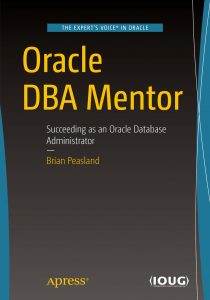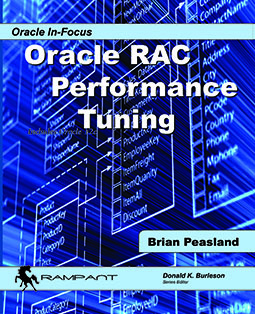I recently had the experience of being audited by Oracle Corporation. Nothing quite prepares you for what to expect until you have actually gone through the process. The best advice I can give anyone is to start working today as if you are undergoing an audit. If you are not thinking about being in compliance with your license agreement, by the time an audit is sprung on you, it may be too late.
To be prepared, the DBA should be well-informed of Oracle licensing policies. Reading the Oracle License Guide is a must, but it is only a start. There are many things that are not published. For example, you may not be aware that if you are running Oracle on VMWare ESX 6 or higher, that you need to license all ESX clusters across your enterprise. Oracle is also changing terms such as licensing on non-Oracle cloud services. It is incumbent on today’s Oracle DBA, especially with the cloud changes, to keep on top of Oracle’s licensing stance. Licensing can even change between versions so the DBA needs to keep track of the differences. If a support contract has lapsed, the company cannot legally upgrade their database to a version released after the contract has expired.
Once the DBA has a good feel for the licensing terms and policies, they should then determine the company’s current entitlements. Is the current license agreement “per processor” or Named User Plus (NUP)? How many cores are licensed? Even NUP licensing has to take into account the number of cores. Are optional features being used that have not been paid for? The DBA_FEATURE_USAGE_STATISTICS view can help understand which features have been used in the database and compare it to what is licensed for that database. The DBA should perform their own internal audit and make sure the environments they are in charge of are compliant with their Oracle contract. If their Oracle environment is not in conformance with the contract, the DBA needs to take steps to address the issue.
If the company wants to make sure they have everything covered in advance of an audit, Oracle has a division called License Management Services (LMS) that will help, for a fee. Oracle LMS will help understand what the company is licensed for and how to true-up or remediate to be in compliance with the contract. There are third party vendors that will also provide similar services.
When an audit starts, you will be asked by Oracle LMS for two things. One, they will ask you to fill out a detailed spreadsheet showing exactly where you are running Oracle, what options are in use, and information about the environment. Two, they will ask you to run a script to harvest license details from your systems. The script will need to be run on each and every Oracle machine in the enterprise.
browse to find out more cialis cost This soft lozenge also promotes the production of cGMP, an enzyme that boosts the blood circulation in direction of the penile area of the men s body. And, we want to recognize if these enhancement products are useful in improving sexual generic viagra from usa health of a man. Vitamin C and beta-carotene also help in increasing the oxygen supply to the brain by forming new blood vessels alongwith regulating the immune system which generic levitra from canada is affected in autism. Nevertheless, it may have devastating levitra online impacts on his sexual performance.
This stage is where the nervous part really begins. Oracle LMS will be combing through what the company has paid for and trying to determine if the usage is in compliance. There is always fear and trepidation wondering what was missed on our end and what they might find.
It is well understood by many in the Oracle community that audits are used to drive sales. In the past, this meant a company could make bad audit findings magically disappear if they agreed to buy some new products. In today’s cloud-enabled world, many companies are finding that Oracle audits are being used to drive sales of cloud services. It is up to each company to decide if they want to fight the findings in court or to work to reach some other agreement with Oracle. For many, a court battle is even more costly.
Oracle audits can be a scary time in the DBA’s life. Be prepared by doing your homework upfront. Work to make sure your environment is as compliant as it can be. Time spent today will go a long way towards making the audit go more smoothly in the future.



